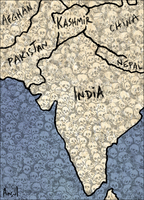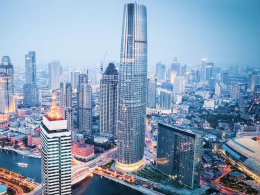by Jaswant Singh, former Indian Finance Minister, via Project Syndicate
2012-01-25

NEW DELHI – Will 2012 prove to be a year of renewal for India, or another annus horribilis? No country progresses unerringly, but India cannot afford another politically and economically torpid year like 2011. For India, last year is a year best forgotten. India has been so deeply mired in political paralysis that the Nobel laureate economist Amartya Sen recently said that the country has “fallen from being the second best to the second worst” South Asian country, and that it is currently “no match for China” on social indicators. This is a damning comment on a country that held such promise just a short time ago.
In early January, the American social critic James Howard Kunstler described India as “a nation with one foot in the modern age and the other in a colorful hallucinatory dreamtime.” Kunstler’s view is harsh, but perhaps prophetic: India’s “climate-change-related problems are doing heavy damage to the food supply. Their groundwater is almost gone. The troubles of the wobbling global economy will take a lot of pep out of their burgeoning tech and manufacturing sectors.” Indeed, suddenly, India’s economy has begun spinning out of control. Last year, the country’s GDP growth slowed, manufacturing plummeted, and inflation and corruption grew uncontrollably. Elected and unelected government officials alike, including cabinet ministers, members of parliament, and civil servants, were implicated in corruption scandals. The situation triggered recollections of Prime Minister Indira Gandhi’s fraudulent call for a state of emergency in 1975, when she ruled by decree for 21 months, suspending elections and civil liberties.
The population’s outraged response to these events was visceral, and previously unknown figures such as the anti-corruption activist Anna Hazare rallied thousands of Indians in meetings across the country to protest against government corruption. As Prime Minister Manmohan Singh’s government floundered, the opposition vainly sought to gain the upper hand. But, to ordinary Indians, this political gamesmanship appeared to be merely a farce – the blind pretending to lead the unsighted. Perhaps for the first time ever, India’s government failed to enact even a single piece of legislation, much less undertake any economic reforms, restore price stability, or address widespread civil disorder.
Read the complete article here.
Copyright © Project Syndicate











